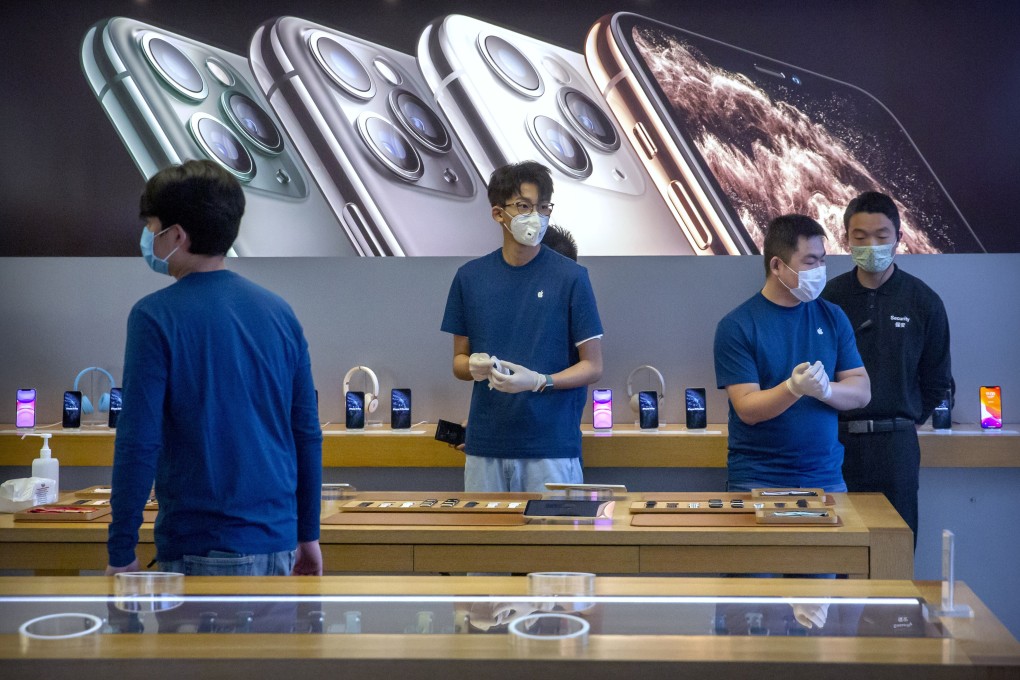Apple joins live-streaming bandwagon with discounted iPhones for China’s midyear shopping festival
- Many retailers, unable to open their brick and mortar stores during the pandemic, have pinned their hopes on the 618 shopping festival to revive business
- Apple’s iPhone sales declined 8.2 per cent year on year to 41 million units in the first quarter

US tech giant Apple has joined China’s live-streaming e-commerce bandwagon with a special Tmall promotion for iPhones generating gross merchandise volume (GMV) of more than 500 million yuan (US$70.1 million) within the first five hours.
Tmall, the online marketplace operated by e-commerce giant Alibaba Group, is offering discounts of up to 20 per cent on a range of Apple products, including the new iPhone 11, according to information posted on the store.
Li Jiaqi, one of China’s most famous live streaming salesmen, was recruited to help promote the sale. “Here it comes! … It’s the first time Apple’s Tmall official flagship store joins the live-streaming platform,” Li said during a live streaming session on May 28, ahead of the so-called 618 annual spending festival that kicked off on Monday.
Separately, sales of Apple products on rival e-commerce platform JD.com, which initiated the 618 midyear shopping campaign 17 years ago, amounted to 1.5 billion yuan on the first day of the promotion, JD said.
Apple declined to comment on its sales performance in China.